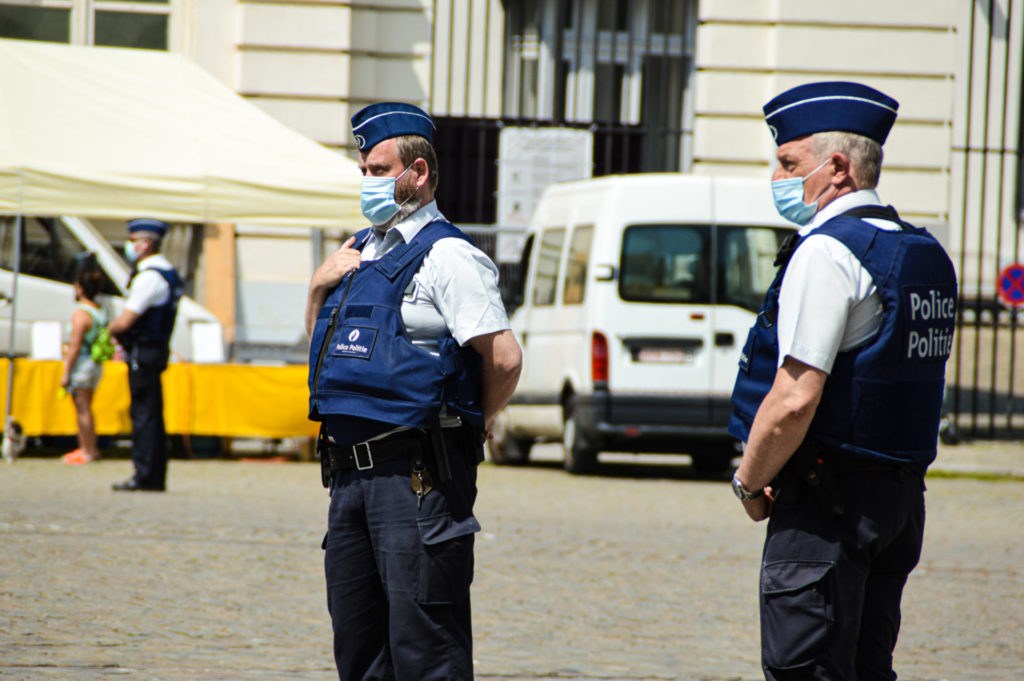A large majority of police officers in Belgium have experienced at least one traumatic incident while carrying out their duties, while the number of staff that have developed psychological trauma as a result of this is likely higher than estimated.
Around one in 30 people are estimated to suffer from post-traumatic stress disorder (PTSD), a condition that could last for years and is characterised by a failure to recover from having experienced or witnessed a disturbing event, according to a study by the University of Leuven (KU Leuven), seen by The Brussels Times.
Police officers are more likely subject to traumatic events during work, meaning the risk of developing this disorder is greater in police officers than in the general population.
"Despite the already high prevalence of post-traumatic complaints among police officers, research shows that the prevalence may be even higher than estimated," the study, which has not yet been peer-reviewed, noted.
Around 2,000 officers from 15 local police districts in Flanders were presented with 29 incidents that they might experience during their duties.
Some 65% of civilian staff — who mostly practise administrative functions — and almost all operational staff stated that they had experienced what would be classified as a potentially traumatic event (PTE).
Damaging effect of PTE
Among operational staff, 83.8% were victims of severe verbal abuse, and 88.5% were victims of physical violence. In around 40% of the cases, officers were subject to such behaviour more than five times.
A large majority (93%) of the operational staff indicated that at least one of these PTEs had a serious and long-lasting impact on them, most often linked to physical aggression with a weapon, or if officers are victims of sexual aggression (more than a quarter of female police officers have been the victim of such behaviour).
Related News
"Regular exposure to incidents of a potentially traumatising nature is thus the rule rather than the exception among operational staff members."
Around 7.4% formally suffer from the four symptoms of PTSD — reliving the incident experienced, avoidance of thoughts or situations reminding them of the event, strong vigilance and tension and negative or disturbed self-image — for at least a few weeks as a result of this.
Another 7.6% suffer from three of the four symptoms, meaning more than one in seven operational police officers have post-traumatic complaints, of which half of them are serious cases.
Larger problem than is estimated
According to the study's results, "the development of PTSD can happen to any member of staff and is a broad problem in the police force that is not restricted to one specific group of staff members, or to their gender or age."
It is thought that the number of officers suffering from the disorder is even higher than is indicated by the report, as police officers are inclined to underestimate their own symptoms, or are ashamed of their psychological complaints, as opposed to physical ones.
They are also less likely to report complaints if they believe they are less severe than they are experiencing them, and also seek help less often than people in the general population.
People suffering from PTSD are also more likely to have other psychological problems, such as suicidal thoughts, or drug and alcohol abuse.
As a result, if PTSD symptoms do come to light, this often happens in a secondary way, through for example staff absenteeism, or increased aggression as they find it harder to control their emotions.
The police in Belgium have frequently faced criticism of and investigation into the level of violence among certain officers during searches and other duties, especially racial violence.
The study is part of the Athena research project, aiming to advance scientific knowledge about the prevention, development and treatment of post-traumatic complaints among police officers.
Anyone having thoughts about suicide can get help by contacting the Suicide Line on the number 1813 or by going to www.zelfmoord1813.be, or the Suicide Prevention Center at 0800 32 123 or at www.preventionsuicide.be

